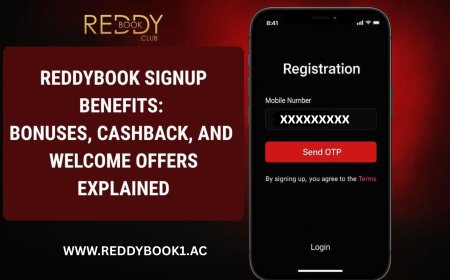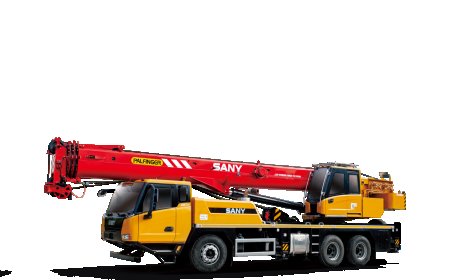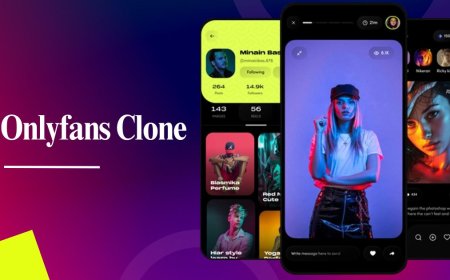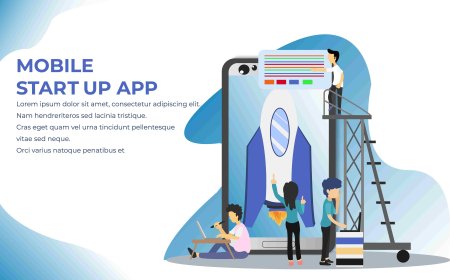How to Hire an Application Developer Who Understands Business Needs 2025
In 2025, the bar for hiring application developers has risen dramatically. It’s no longer enough to find someone who can just write efficient code.
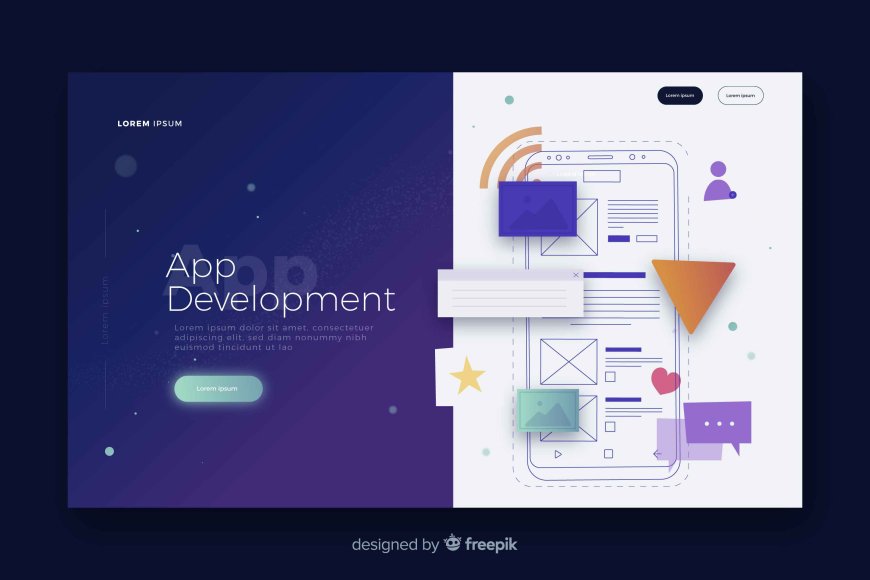
Introduction
In 2025, the bar for hiring application developers has risen dramatically. Its no longer enough to find someone who can just write efficient code. Todays most impactful developers are those who understand the why behind the whatwhy a feature matters to your customers, how development aligns with business goals, and what technical choices affect revenue or user engagement.
Startups, in particular, dont have the luxury of separate departments for product, business strategy, and tech execution. You need lean, sharp, and business-aware team members who wear multiple hatsand your developer is no exception. The ideal hire isnt just someone who knows Flutter or React Native. You want someone who asks, Will this feature help retain users or drive revenue?
This guide is designed to help founders, startup teams, and product managers hire the right kind of developer in 2025someone who not only codes but contributes to business success. From setting hiring strategies to interviewing and collaboration practices, well walk through everything you need to know to get it right.
Understanding the Intersection of Tech and Business
Why Business Acumen Matters in Development
When a developer understands your business goals, they do more than write codethey make smart, intentional choices that push your company forward. Business-aware developers think like product managers. They optimize for user value, question unnecessary complexity, and prioritize features that deliver ROI.
For example, say you're building a subscription-based wellness app. A technically brilliant developer might build a beautiful journaling feature. But a business-minded developer would first ask: How does this help user retention? Could this feature be limited for free users and fully unlocked for subscribers? Thats a mindset that impacts your bottom line.
In 2025, features must be aligned with strategic goals. Every sprint must be tied to metricsuser activation, engagement, churn reduction, or monetization. A developer who understands these things naturally becomes a strategic partner, not just a task executor.
Heres what business-minded developers help you avoid:
- Feature bloat with no real user impact
- Time wasted on non-essential builds
- Disconnect between tech output and business outcomes
They help you build a leaner, faster, and smarter product.
Key Business Concepts Developers Should Know
So, what should a developer know beyond just how to code?
Here are some essential business concepts your developer should understandor at least be open to learning:
MVP (Minimum Viable Product):
The ability to prioritize core features and get something functional to market fast.
Product-Market Fit:
Awareness of what users truly want and which features solve their problems.
Revenue Models:
Whether its freemium, subscriptions, one-time payments, or in-app purchasesdevelopers need to understand how the app makes money.
Customer Lifecycle:
Understanding how users move from awareness to activation to retention, and what role tech plays in each stage.
Key Metrics:
Metrics like CAC (Customer Acquisition Cost), LTV (Lifetime Value), churn, conversion rates, and DAU/MAU are critical in making product decisions.
Scalability and Cost-Efficiency:
Developers should be aware of how their choices affect server costs, load speeds, and maintainability.
Feedback Loops:
A great developer doesnt just build and forgetthey analyze feature performance post-launch and iterate accordingly.
A developer who speaks this languageeven at a basic levelis exponentially more valuable than one who just ticks off task lists from Jira.
Preparing Your Hiring Strategy
Define Business Goals Before Technical Specs
Too many startups jump straight into the tech stack discussion before theyve clearly defined the business problem theyre solving. Thats a mistake. Before you even start looking for a developer, outline your business objectives first.
Ask yourself:
- What problem are we solving?
- Who is our customer?
- What outcome do we want from this first version of the app?
- What metrics define success (e.g., sign-ups, purchases, retention)?
Once these are clear, you can start defining which features support those goals. Thenand only thenshould you define the technical specs.
Heres a simple breakdown:
Business GoalFeatureTech Need
Get users to sign up Social login (Google, Apple) Firebase Auth, OAuth
Retain users Push notifications for activity Firebase Messaging
Monetize Subscription paywall Stripe integration
When you hire a developer, share this kind of breakdown. It instantly shows them the bigger picture and sets a tone of business-driven development. Developers who resonate with this thinking are the ones you want to hire.
Identify the Right Developer Profile
Now that youre thinking with a business-first mindset, its time to define what kind of developer you need. Not all devs are created equaland not all are cut out for startup environments.
Lets break down some common profiles and what to look for:
- Product-Oriented Developers
- These devs think in features, user flows, and KPIs.
- They ask questions like: Why are we building this?, Whats the fastest way to test this?
- Ideal for early-stage startups and MVPs.
- Startup-Experienced Developers
- Developers whove worked in or launched startups themselves.
- They understand lean methodology, fast pivots, and iterative development.
- Look for portfolio items that show ownership and product involvement.
- Freelancers Who Specialize in Startups
- Theres a growing segment of freelance devs who love startup chaos and thrive in 01 product building.
- They usually work in sprints and know how to work without detailed specs.
- Tech Co-Founders
- If youre looking for a long-term partner, a tech co-founder might be the right fit.
- This person shares your vision, helps shape the roadmap, and may take equity instead of (or in addition to) salary.
Important: Avoid developers who ONLY want to be told what to do, without questioning or improving the plan. If you want true impact, you need someone who challenges assumptions and cares about the products success.
Where to Find Business-Savvy Developers in 2025
Business-Focused Tech Communities
In 2025, developer communities have evolved far beyond traditional code forums. Many now focus on startup-savvy and product-aware tech talentperfect hunting grounds if youre looking for a developer who understands business.
Here are the top communities where youll find business-minded developers:
Indie Hackers
This is where developers are also entrepreneurs. Many of them build side projects, launch startups, and obsess over things like MRR (Monthly Recurring Revenue) and churn. Post on the Hiring section or join their Slack group to network.
Product Hunt Makers
Developers here often work on public launches and growth-focused features. Great if you want a dev who understands launch timelines, feedback loops, and virality mechanics.
Dev.to
While broader in scope, Dev.to includes a growing segment of developers who write about startup life, product design, and business challenges. Look for contributors with entrepreneurial content.
Buildspace & Replit Communities
These communities are filled with builders whove shipped MVPs, joined hackathons, and published productsmany with a focus on monetization and user traction.
Pro Tip: Dont just post a job and wait. Engage. Comment on their projects, start conversations, and be genuine. Business-savvy developers often look for inspiring startup leaders as much as they look for a paycheck.
Top Hiring Platforms and Filters
Not all hiring platforms are created equal. If you're looking for developers who "get" business, you need to look beyond the usual suspects and focus on platforms that let you filter by mindset, experience, and startup fluency.
Heres where to search in 2025:
Toptal
Toptal's vetting process includes communication and problem-solving tests, so you're more likely to find developers who can think strategically. Filter by startup experience and previous product ownership.
Lemon.io
Known for connecting startups with pre-vetted developers who specialize in fast MVP launches. Many of them have startup experience or side projects.
Upwork (with filters)
Upwork has a wide range of developers. Use advanced filters like:
-
- Startup experience
- Product management background
- Long-term client relationships
- Business category tags (e.g., eCommerce, Subscription apps)
Wellfound (formerly AngelList Talent)
A goldmine for startup-focused developers. Most are open to part-time, full-time, or even co-founder roles. Profiles often list business experience, startup history, and even fundraising involvement.
Remotive & WeWorkRemotely
Post your listing with a clear emphasis on business awareness. These platforms attract remote-first, entrepreneurial-minded devs.
In your job post, include phrases like:
- Looking for a developer who understands product growth
- Must be able to align features with user engagement metrics
- Comfortable discussing business models and KPIs
These signal you're not just hiring a coderyou want an innovation partner.
Using LinkedIn and Founder Networks
LinkedIn is still one of the most powerful tools for sourcing business-minded developersif you know how to use it strategically.
Start by crafting a job post that speaks directly to what youre looking for:
- Mention your mission, business goals, and product vision
- Highlight that you're looking for a product-driven, business-aware developer
- Share the growth opportunitynot just tasks
Then use advanced LinkedIn filters:
- Search for devs with experience in early-stage startups, founder, or side project
- Use Boolean searches like:
- "React developer" AND "startup" AND "MVP"
- "Flutter" AND "side project" AND "freelancer"
Also, dont underestimate the power of founder referrals. Reach out to your network:
- Other startup founders
- Investors or accelerators
- Communities like Y Combinator, OnDeck, or Techstars
A warm intro can bring in high-caliber developers who already have business alignment experience.
Bonus Tip: Share your post on X (Twitter) with a short founder story and call-to-action. Business-minded developers often hang out there and appreciate authenticity.
Interviewing and Vetting for Business Understanding
Business-Oriented Interview Questions
Forget the standard Whats your experience with JavaScript? line of questioning. Youre looking for someone who can think beyond the code.
Ask questions that probe their business awareness and product intuition:
- Can you describe a time when a business goal influenced how you built a feature?
- Look for examples of prioritizing performance, reducing scope, or shifting direction based on strategy.
- Have you ever disagreed with a founders request? What happened?
- A strong answer shows theyre not afraid to speak up when something doesnt align with the product vision.
- How do you measure the success of your work?
- Great devs talk about user feedback, KPIs, app performancenot just code quality.
- Whats your approach to building an MVP?
- Do they focus on speed, testability, and core value delivery?
- Have you ever worked on monetization features?
- Look for experience with subscriptions, paywalls, ads, or in-app purchases.
Their answers will reveal whether they simply write code or build solutions with an eye on business value.
Reviewing Portfolios with a Business Lens
When reviewing a developers portfolio, dont just look at design or functionalitylook for signs of strategic thinking.
Heres what to analyze:
- Project descriptions:
- Do they mention business outcomes like user growth, reduced churn, or increased engagement?
- Live links with traction:
- Are any apps in the portfolio being actively used or monetized?
- Ownership language:
- Do they say, I implemented or We shipped this feature to improve retention?
- Case studies or blog posts:
- Some developers write about their processlook for those who talk about product decisions, pivots, or growth strategy.
Also, ask:
- Which feature in this app delivered the most value, and how do you know?
- Was this app built with business goals in mind or just as a technical challenge?
These questions quickly separate code writers from product collaborators.
Reviewing Portfolios with a Business Lens
A strong portfolio isnt just about aesthetics or clever codeit should tell a story of impact, ownership, and alignment with business goals. When reviewing a candidates past work, youre looking for signs that they contributed meaningfully to the success of the product, not just its execution.
Heres what to look for in a business-aware developers portfolio:
Ownership Language
Do they describe their role in terms like led the backend redesign or collaborated with the founder to prioritize features? This signals involvement beyond just task completion.
Monetization Experience
Check if theyve worked on:
-
- Subscription models (free vs premium access)
- In-app purchases
- Ad integrations
- Payment gateways (Stripe, PayPal)
Bonus if they can describe the impact these features had on conversion rates or revenue growth.
User Retention Metrics
Look for references to:
-
- Churn rate reduction
- Push notification strategies
- Gamification or onboarding improvements
- A/B testing or feature optimization
Product Iteration Experience
Did they participate in rolling out features based on user feedback? Can they talk about why a feature was removed or redesigned?
Red flag: A portfolio full of apps with no business contextjust login page, CRUD app, or chat featurelikely indicates a coder, not a business-aligned developer.
Ask follow-ups like:
- What business problem did this feature solve?
- How did you measure success?
- If you could redo this project, what would you do differently from a business standpoint?
Assigning Business-Sensitive Test Projects
The test project is your chance to validate that a developer doesnt just write great codethey think strategically.
Instead of giving a generic coding challenge (like building a to-do app), assign a business-sensitive task that mimics a real-world startup scenario.
Examples of smart test projects:
- Build a subscription onboarding flow
- With freemium logic, upgrade prompt, and Stripe integration
- Ask them to add analytics events for tracking conversions
- Create a dashboard with active user metrics
- Have them implement dummy data for DAU, retention, and user engagement
- Bonus: Include feature toggle capability to simulate A/B testing
- Redesign an existing feature for UX improvement
- Give them a clunky feature and ask how theyd make it simpler or faster
- They should explain how that could impact user engagement or churn
What youre evaluating:
- How well they align the code with product goals
- Whether they suggest improvements or blindly follow instructions
- How they document decisions and communicate trade-offs
Dont expect perfectionlook for potential, especially their ability to think like a builder, not just a developer.
Communication and Collaboration Expectations
Setting Shared Language: KPIs and Metrics
Your startup is not just building an appits solving a business problem. To align your developer with that mission, you must speak a common language of metrics.
Encourage regular conversations about:
- CAC (Customer Acquisition Cost): Does a new feature make it cheaper to acquire users?
- LTV (Lifetime Value): Does this feature encourage longer-term use?
- Churn Rate: Are users leaving faster than expected? Why?
- Conversion Rate: What percentage of free users are upgrading to paid?
Start including these KPIs in your standups and sprint planning. For example:
- This week, our goal is to reduce churn by 5%well do that by adding a feedback prompt on exit.
- Were optimizing onboarding to improve activation rates. Lets review the bounce data.
A developer who embraces this shared language will naturally align their efforts with business growth.
Agile Practices with a Business Focus
Agile development is common, but most teams focus only on sprints and storiesnot outcomes. In a business-driven startup, your Agile workflow should be customer-obsessed and metric-aligned.
How to make Agile more business-focused:
- Sprint Goals = Business Goals
- Instead of Implement login feature, aim for Reduce onboarding drop-off by 20%.
- Story Points = Value, Not Effort
- Prioritize features by impact on revenue or retention, not by how easy they are to build.
- Founders in Retrospectives
- Bring your developer into discussions around customer feedback and strategy pivots.
- Demo Days = Business Showcases
- At the end of each sprint, tie the demo to a user or metric win, not just a code deliverable.
This ensures developers see their work not as isolated tasks, but as part of a larger product journey. The best developers thrive in this kind of environmentthey love seeing their code affect real users.
Long-Term Alignment and Retention
Incentivizing Business Outcomes
Once you find a business-savvy developer, keep them. In 2025, top developers are in high demand, and the smartest ones want more than just a paycheck.
Heres how to keep them invested:
- Offer Equity or Profit Sharing
- Even a small percentage can make a big difference. This turns devs into co-owners who care deeply about the outcome.
- Bonuses Tied to KPIs
- Example: $1,000 bonus if we hit 10,000 active users this quarter
- Or, $500 for launching the new upgrade flow before end of sprint 3
- Involve Them in Roadmapping
- Ask for their input on feature prioritization
- Give them space to pitch their ideas
- Growth Opportunities
- Let them grow into lead roles, manage junior devs, or evolve into a CTO
Retention isnt just about compensationits about connection, ownership, and growth. Make them feel like a core part of your startup, not just a resource.
Creating a Product-Minded Culture
Want to scale a successful product? You need developers who care about users, not just tickets.
Heres how to cultivate that culture:
- Invite Developers to Strategy Meetings
- Let them hear the vision, product feedback, and customer pain points firsthand.
- Encourage Participation in User Interviews
- Developers gain perspective when they hear what users loveor hateabout their work.
- Share Metrics Publicly
- Keep a live dashboard with KPIs that everyone, including devs, can access.
- Celebrate Outcomes, Not Just Code
- Dont just say We deployed the new feature. Say, That feature increased trial-to-paid conversion by 12%!
This creates a loop of motivation: developers see the results of their work ? they care more ? they build smarter ? business grows.
Conclusion
Hiring an app developer who understands your business needs is a game-changer in 2025. Its the difference between launching a product and building a company.
You dont need the most expensive or technical developeryou need the one who aligns with your vision, speaks the language of metrics, and cares about outcomes. Whether youre building an MVP, scaling up, or pivoting, having the right person in the trenches makes all the difference.
FAQs
Whats the difference between a developer and a product engineer?
A developer executes code. A product engineer thinks strategically about what should be built, how it impacts users, and how it drives business results.
Can I train a developer to think more about business?
Yes. Start by involving them in strategic meetings, sharing KPIs, and explaining how their work contributes to outcomes. Encourage business thinking over time.
Should I hire someone with startup experience?
Absolutely. Developers with startup backgrounds are often more flexible, business-aware, and comfortable with ambiguity and rapid change.
How can I assess if a developer understands business needs?
Ask about past projects tied to business outcomes. Give test tasks that involve prioritization or revenue logic. Evaluate how they talk about product successnot just code.
What are red flags during interviews or onboarding?
Watch for vague answers, disinterest in user or product discussions, reluctance to collaborate, or an overfocus on just tech specs without regard for goals or user value.


